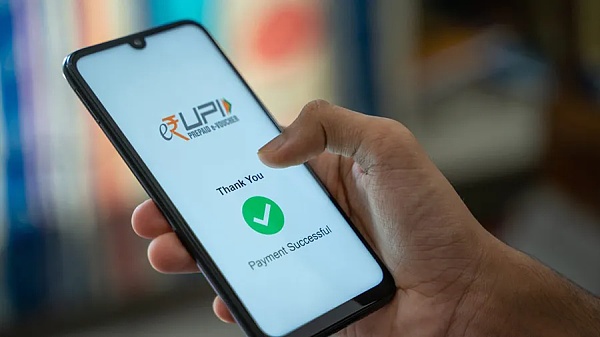Can you make payments by talking to AI? The Reserve Bank of India explores innovative instant payment technology.
India's Reserve Bank explores AI-powered instant payment technology.Compilation: Blockchain Knight
The Governor of the Reserve Bank of India, Shaktikanta Das, has proposed the introduction of AI-driven instant “conversational payments”. He stated that this technology will enable users to have conversations with AI systems and make payments in a secure and reliable environment.
Countries around the world are increasingly focusing on the digitization of their economies. While India’s Unified Payments Interface (UPI) system has already been widely adopted, the Reserve Bank of India aims to achieve conversational payments through AI.
- Glassnode Cryptocurrency market trading volume reaches historical low, BTC is experiencing an unprecedented period of low volatility
- Exploring the Optimal Voting Technology Detailed Explanation of Vota, a Special Purpose Infrastructure for Decentralized Community Governance
- LianGuai Daily | The contract address of LianGuai Stablecoin PYUSD has been announced; OpenAI has launched the web crawler GPTBot, which can automatically collect information to improve AI models.
Initially, users will only be able to give voice commands in Hindi and English, but the system will be updated in the future to support conversations in more regional languages.
UPI is a real-time payment system developed by the National Payments Corporation of India, which integrates different bank accounts into a single mobile application. Currently, this facility has achieved a high penetration rate in India.

Last month, UPI recorded 9.96 billion transactions. Users made transactions worth INR 15.34 trillion (approximately $185.64 billion) using the UPI facility in a month. In July, UPI transactions increased by 58% year-on-year, and transaction value increased by 44%.
While UPI has gained wide adoption in India, the Reserve Bank of India has also launched its Central Bank Digital Currency (CBDC), known as the digital rupee. Currently, India’s CBDC is in the pilot phase.
According to BeInCrypto, in July, HDFC Bank, a private lending institution in India, included over 100,000 customers and 170,000 merchants in the digital rupee pilot program.
Currently, many countries are competing to develop their own CBDCs. The Bank for International Settlements predicts that by 2030, 24 central banks will have launched their own digital currencies.
It is reported that China’s CBDC, the digital yuan, has reached a milestone of $250 billion in transaction volume.
In addition, mainland China, Hong Kong, Thailand, and the United Arab Emirates are collaborating on the development of the payment platform mBridge. The platform aims to make the renminbi a substitute for the US dollar in international trade settlements.
With the widespread adoption of CBDCs, Nischal Shetty, co-founder of Sharedum, believes that the world may witness a shift towards dollarization.
We will continue to update Blocking; if you have any questions or suggestions, please contact us!
Was this article helpful?
93 out of 132 found this helpful
Related articles
- Building a Virtual World How to Use Blockchain Technology to Record Time for Digital Gods?
- Bitcoin Technology Revival? A Comprehensive Review of the Ordinals Series Protocols
- Reasons for the decline of ICP Independent technology and sparse ecosystem
- How will the metaverse truly land? Futureverse raises $54 million to focus on digital infrastructure
- Inventory of 6 projects in ETHGlobal LianGuairis that utilize authentication technology to build voting systems.
- Fit21 Encryption Bill of the Republican Party in the United States Approved for Full Deliberation in the House of Representatives
- From parameter A, examining the technical details and governance philosophy of Curve
